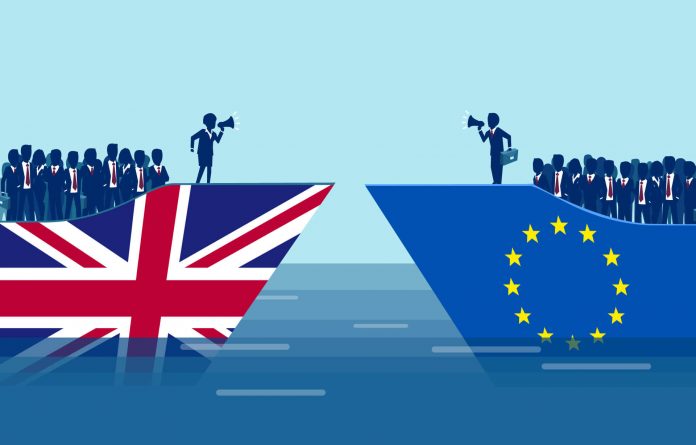Almost four years on from the EU referendum, the UK finally left the European Union on the 31st January. But many business owners are still mainly in the dark regarding what’s going to happen in terms of the long-term relationship between the EU and the UK. A deal has been negotiated that will eventually lead to the UK leaving the EU’s customs union at the end of the transition period, expected in December 2020.
For fleet businesses, preparation can’t come too early. There is still a lot of uncertainty as to how trade with the EU is going to continue, plus any future trade deals that the UK may strike with other non-EU countries.
Fleet businesses who normally operate across the EU are expected to see some massive changes over the coming months. Here are some of the potential challenges your fleet business is likely to face.
The Cost of Running a Business Fleet Will Rise:
Last year, a poll of UK fleet managers reached the consensus that the cost of running a fleet will rise. And now that the exit has been finalised and the UK is expected to leave the customs union, it’s pretty much a fact.
Thankfully, a no-deal Brexit won’t happen – a situation that would have imposed a 22% tariff on imported HGVs, a crippling blow to many UK hauling companies. However, additional costs are still expected to be incurred which will apply to fleets of cars, commercial vehicles such as vans, and trucks, due to a lack of a preferential trade deal with the UK’s biggest markets.
There Could be a Potential Labour Shortage:
There have already been government consultations on setting a minimum pay threshold of £30k per year for EU workers who apply for UK work permits. And, since the referendum result back in 2016, there’s been a rapidly rising number of EU workers who have left and are continuing to leave the UK. In addition to a drop in the number of workers who meet the new pay criteria, this could lead to critical labour shortages in various areas.
In the coming months and years, it’s likely that UK fleet businesses will not only find it more difficult to recruit workers from overseas, but they will also be required to pay higher salaries in order to do so. This could result in an increase in fleet maintenance cost, repairs and servicing. And, in addition to the rise in costs, mechanical shortages could lead to delays that put some small fleet vehicles off the road.
Fuel Costs:
Fuel is often listed as one of the biggest expenses for fleet management. In fact, fuel alone accounts for up to a huge 60% of a fleet’s total operating costs.
And fluctuations in the price of fuel are expected to be just another uncertainty thanks to the Brexit process. In 2016, the cost of fuel shot up rapidly immediately after the vote as the pound plummeted 10% against the dollar, leaving crude oil much more expensive to import per barrel.
Since the referendum, the pound’s value has largely remained flat, and while the price of crude oil is stable, some experts predicted further drops in the value of pound sterling against the dollar now that the UK has left the EU. And they were right, with the pound dropping again on the first trading day after the UK finalised the exit from the European Union.
Vehicle and Parts Cost and Availability:
Today, vehicles that require repairs will often rely on genuine, high-tech parts made by the manufacturer. And, many of those parts are imported from the EU, which is likely to incur additional costs for fleets now that Brexit has taken place.
The good news is that a no-deal Brexit didn’t happen – but on the other hand, the UK will leave the customs union, losing the right of free trade. This means that unless another deal is reached before the end of the transition period, British companies will be required to pay tariffs on any imports, ultimately increasing the overall costs of vehicle parts and repairs for fleet businesses.
And, the shifting value of the pound will have an effect. Bear in mind that the pound has already dramatically lost value against the Euro since the 2016 vote, which has increased the price of vehicles and parts manufactured by EU member states. It’s a situation that’s only expected to get worse now that we’ve left the EU.
Uncertainty in the UK’s Used Vehicle Market:
Combined with the introduction of the Ultra Low Emissions Zone in London in April 2019, Brexit uncertainty is already showing signs of unsettling the used vehicle market in the UK. While demand and the general level of prices remain high, companies are more cautious than ever when making vehicle investment decisions.
For example, companies have switched to purchasing cheaper vans, compared to getting finance or using their own reserves to obtain a newer, more expensive model. The past few years have seen a shift to businesses favouring used vehicles in lower prices ranges; opting for the £4-8k bracket compared to £10-15k.
It’s a trend that’s already affected buying patterns of UK used vehicle dealers. Higher-cost stock, such as Ford Transit Customs and VW Caddys could be in demand one week, and difficult to move the next.
What Should Fleet Managers Be Doing?
If you’re in a business that’s likely to be harmed now that the UK has left the EU, you’ve probably already started planning. If you’re likely to need fewer vehicles in the future due to Brexit, there’s no point buying new ones now or tying the company into lengthy lease deals. Many fleet managers have opted to hold onto current vehicles for longer until the situation becomes clearer.
Another strategy many fleet managers are taking is looking into how their annual fuel bill can be reduced, particularly if it’s typically large. Some options for achieving this include:
- Introducing fuel cards that can only be used at cheaper, supermarket fuel stations
- Investing in telematics like Smart Tacho to get better control over mileage claims. According to FleetGo, telematics devices can substantially affect fuel consumption by allowing both managers and drivers to track routes and make adjustments for better efficiency, and track driver styles to direct and focus training. FleetGo offers a range of telematics options for all types of fleet businesses.
- Doing away with offering free private fuel to employees.
- Exploring the fuel economy of each car and identifying areas that are costing the most.
- Introducing driver training to cut down on aggressive driving methods that can lead to further fuel consumption.
- Introducing electric or hybrid cars for drivers making short journeys in urban areas.
And, looking into a review of the way vehicles are funded is a key factor in the UK’s used vehicle market changes. Contract hire has been the most popular type of vehicle finance used by fleets for years, but it does not work for all businesses or all vehicles.
With Brexit behind us, fleet managers are realising the real savings to be had from conducting a detailed analysis of other finance options. Employee car ownership schemes, for example, while more complex than conventional finance schemes, can lead to real savings. And, review the cars that you make available to your employees. In order to save on tax and National Insurance, 110g/km should be the upper limit. Today’s modern, lighter petrol engine vehicles are excellent, offering superior performance, low tax, and low CO2 emissions.
What’s your fleet doing to adapt to Brexit?





































